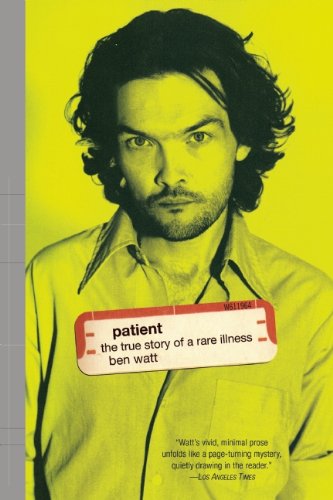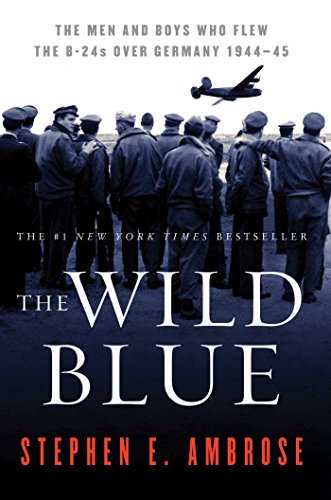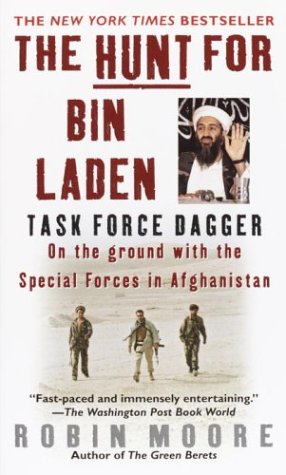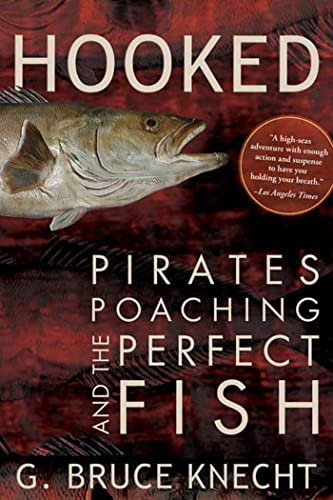Non-fiction books Ive enjoyed
Discover the best non-fiction books I've enjoyed, featuring insightful reads across various genres. Explore my top recommendations for thought-provoking and inspiring non-fiction titles.

Book
Guns Germs and Steel
by Jared Diamond
"Fascinating.... Lays a foundation for understanding human history."—Bill Gates Winner of the Pulitzer Prize, Guns, Germs, and Steel is a brilliant work answering the question of why the peoples of certain continents succeeded in invading other continents and conquering or displacing their peoples. This edition includes a new chapter on Japan and all-new illustrations drawn from the television series. Until around 11,000 BC, all peoples were still Stone Age hunter/gatherers. At that point, a great divide occurred in the rates that human societies evolved. In Eurasia, parts of the Americas, and Africa, farming became the prevailing mode of existence when indigenous wild plants and animals were domesticated by prehistoric planters and herders. As Jared Diamond vividly reveals, the very people who gained a head start in producing food would collide with preliterate cultures, shaping the modern world through conquest, displacement, and genocide.The paths that lead from scattered centers of food to broad bands of settlement had a great deal to do with climate and geography. But how did differences in societies arise? Why weren't native Australians, Americans, or Africans the ones to colonize Europe? Diamond dismantles pernicious racial theories tracing societal differences to biological differences. He assembles convincing evidence linking germs to domestication of animals, germs that Eurasians then spread in epidemic proportions in their voyages of discovery. In its sweep, Guns, Germs and Steel encompasses the rise of agriculture, technology, writing, government, and religion, providing a unifying theory of human history as intriguing as the histories of dinosaurs and glaciers.


Book
Into the Wild
by Jon Krakauer
In April 1992, a young man from a well-to-do family hitchhikes to Alaska and walks alone into the wilderness north of Mt. McKinley. Four months later, his decomposed body is found by a moose hunter. How Chris McCandless came to die is the unforgettable story of Into the Wild.

Book
Ship of Gold in the Deep Blue Sea
by Gary Kinder
Chronicles the final voyage of the SS Central America, as it sank off the Carolina coast in 1857, and explains the recent technology used to recover the ship and the twenty-one tons of gold that sank with it.

Book
Night
by Elie Wiesel
Presents a true account of the author's experiences as a Jewish boy in a Nazi concentration camp.



Book
Into Thin Air
by Jon Krakauer
#1 NATIONAL BESTSELLER • The epic account of the storm on the summit of Mt. Everest that claimed five lives and left countless more—including Krakauer's—in guilt-ridden disarray. "A harrowing tale of the perils of high-altitude climbing, a story of bad luck and worse judgment and of heartbreaking heroism." —PEOPLE A bank of clouds was assembling on the not-so-distant horizon, but journalist-mountaineer Jon Krakauer, standing on the summit of Mt. Everest, saw nothing that "suggested that a murderous storm was bearing down." He was wrong. By writing Into Thin Air, Krakauer may have hoped to exorcise some of his own demons and lay to rest some of the painful questions that still surround the event. He takes great pains to provide a balanced picture of the people and events he witnessed and gives due credit to the tireless and dedicated Sherpas. He also avoids blasting easy targets such as Sandy Pittman, the wealthy socialite who brought an espresso maker along on the expedition. Krakauer's highly personal inquiry into the catastrophe provides a great deal of insight into what went wrong. But for Krakauer himself, further interviews and investigations only lead him to the conclusion that his perceived failures were directly responsible for a fellow climber's death. Clearly, Krakauer remains haunted by the disaster, and although he relates a number of incidents in which he acted selflessly and even heroically, he seems unable to view those instances objectively. In the end, despite his evenhanded and even generous assessment of others' actions, he reserves a full measure of vitriol for himself. This updated trade paperback edition of Into Thin Air includes an extensive new postscript that sheds fascinating light on the acrimonious debate that flared between Krakauer and Everest guide Anatoli Boukreev in the wake of the tragedy. "I have no doubt that Boukreev's intentions were good on summit day," writes Krakauer in the postscript, dated August 1999. "What disturbs me, though, was Boukreev's refusal to acknowledge the possibility that he made even a single poor decision. Never did he indicate that perhaps it wasn't the best choice to climb without gas or go down ahead of his clients." As usual, Krakauer supports his points with dogged research and a good dose of humility. But rather than continue the heated discourse that has raged since Into Thin Air's denouncement of guide Boukreev, Krakauer's tone is conciliatory; he points most of his criticism at G. Weston De Walt, who coauthored The Climb, Boukreev's version of events. And in a touching conclusion, Krakauer recounts his last conversation with the late Boukreev, in which the two weathered climbers agreed to disagree about certain points. Krakauer had great hopes to patch things up with Boukreev, but the Russian later died in an avalanche on another Himalayan peak, Annapurna I. In 1999, Krakauer received an Academy Award in Literature from the American Academy of Arts and Letters--a prestigious prize intended "to honor writers of exceptional accomplishment." According to the Academy's citation, "Krakauer combines the tenacity and courage of the finest tradition of investigative journalism with the stylish subtlety and profound insight of the born writer. His account of an ascent of Mount Everest has led to a general reevaluation of climbing and of the commercialization of what was once a romantic, solitary sport; while his account of the life and death of Christopher McCandless, who died of starvation after challenging the Alaskan wilderness, delves even more deeply and disturbingly into the fascination of nature and the devastating effects of its lure on a young and curious mind."

Book
John Adams
by David McCullough
Profiles John Adams, an influential patriot during the American Revolution who became the nation's first vice president and second president.

Book
Undaunted Courage
by Stephen E. Ambrose
From the New York Times bestselling author of Band of Brothers and D-Day, the definitive book on Lewis and Clark’s exploration of the Louisiana Purchase, the most momentous expedition in American history and one of the great adventure stories of all time. In 1803 President Thomas Jefferson selected his personal secretary, Captain Meriwether Lewis, to lead a voyage up the Missouri River to the Rockies, over the mountains, down the Columbia River to the Pacific Ocean, and back. Lewis and his partner, Captain William Clark, made the first map of the trans-Mississippi West, provided invaluable scientific data on the flora and fauna of the Louisiana Purchase territory, and established the American claim to Oregon, Washington, and Idaho. Ambrose has pieced together previously unknown information about weather, terrain, and medical knowledge at the time to provide a vivid backdrop for the expedition. Lewis is supported by a rich variety of colorful characters, first of all Jefferson himself, whose interest in exploring and acquiring the American West went back thirty years. Next comes Clark, a rugged frontiersman whose love for Lewis matched Jefferson’s. There are numerous Indian chiefs, and Sacagawea, the Indian girl who accompanied the expedition, along with the French-Indian hunter Drouillard, the great naturalists of Philadelphia, the French and Spanish fur traders of St. Louis, John Quincy Adams, and many more leading political, scientific, and military figures of the turn of the century. High adventure, high politics, suspense, drama, and diplomacy combine with high romance and personal tragedy to make this outstanding work of scholarship as readable as a novel.



Book
Nothing Like It In the World
by Stephen E. Ambrose
The story of the men who build the transcontinental railroad in the 1860's.

Book
The Wild Blue
by Stephen E. Ambrose
The story of the men chosen by the Army Air Forces to man the B-24 bombers which made a vital contribution to the Allied victory.



Book
Hooked
by G. Bruce Knecht
This modern pirate yarn has all the makings of a great true adventure tale and explores the ways our culinary tastes have all manner of unintended consequences for the world around us. Hooked tells the story of the poaching of the Patagonian toothfish (known to Americans as "Chilean Sea Bass") and is built around the pursuit of the illegal fishing vessel Viarsa by an Australian patrol boat, Southern Supporter, in one of the longest pursuits in maritime history. Author G. Bruce Knecht chronicles how an obscure fish merchant in California "discovered" and renamed the fish, kicking off a worldwide craze for a fish no one had ever heard of and everyone had to have. With demand exploding, pirates were only too happy to satisfy our taste for Chilean Sea Bass. From the world's most treacherous waters to its most fabulous kitchens, Hooked is at once a thrilling tale and a revelatory popular history that will appeal to a diverse group of readers. Think The Hungry Ocean meets Kitchen Confidential.